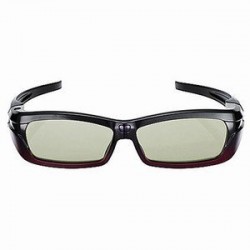Weekly News Roundup (14 August 2011)
Another pretty quiet news week, and once again, NPD has “released” stats for US video game sales in July 2011. More on the later though, let’s get through the small number of interesting news items this week in this relatively short WNR.
 In copyright news, a couple of weeks ago, the story of a 70-year-old grandma being “caught” downloading video porn by a copyright law firm made the headlines.
In copyright news, a couple of weeks ago, the story of a 70-year-old grandma being “caught” downloading video porn by a copyright law firm made the headlines.
This week, a blind man is accused of doing the same. In a scenario that is likely to be repeated over and over again, the man, only known as Doe 2057, suspected that the Wi-Fi router his wife set up might not have been secured, which possibly led to neighbours abusing the connection to download Japanese porn, despite the man living in a “very upscale building”. Before we get to the rights and wrongs of copyright law firms, people really need to be more careful with their Wi-Fi routers. By not securing it, anyone could connect and use up your Internet bandwidth, and that’s actually a best case scenario. Worst case, they would have access to your network, and hence any file shared on the network. The same also applies to routers that use the default password (or no password). And I think router makers have to take some responsibility as well, as far too many routers ship with factory settings that do not have security turned on or use the easily broken WEP protocol – it makes them easy to install, a bit more compatible with older wireless devices, but a little bit of hand-holding in the set up software wouldn’t make the process that much more difficult either.
But with nobody taking any responsibility, the large majority of consumers ignorant of the need to secure their routers, copyright law firms are taking advantage of biased copyright laws. It’s certainly opportunistic, you have to say. The problem is that to actually fight the charges, as Doe 2057 found out, it’s usually more expensive than just paying the on average $2,500 settlement fee. And the copyright law firms know this, and have exploited it beautifully. It was also revealed this week that the number of people being “sued” this way, in the United States lone, has reached over 200,000, according to stats being kept by TorrentFreak. That’s half a billion dollar worth of settlement fees, but assuming not everyone pays up, it’s still a 8 figure amount that many law firms would be delighted to take in over the course of several years. If you ever get caught, you should definitely check out EFF’s page on mass copyright lawsuits, and learn about your options.
A new study seems to show that good games are pirated more, which might sound like common sense to you and me, but nevertheless the study “confirms” it as fact. Except it sort of doesn’t. The TorrentFreak article on this study has more details, including the top 10 list of most pirated games, there are a few cases, such as the awful TRON Evolution game, that still managed to be popular with pirates, despite being unpopular with critics. Similarly, the fairly average and not all all popular (sales wise) ‘Two Worlds II’ managed to get into the top 10, and the hugely popular Starcraft II wasn’t the most pirated game (Fallout: New Vegas was, which is fair enough I suppose). I would actually like to see a study that tries to find a correlation between game sales, piracy rates and the quality of the game. What I would like to know is that if high quality games have a higher or lower ratio of pirated copies versus paid for copies. And then take into consideration things like the exclusive online features of the game (eg. Starcraft II’s Battle.net support), as well as any DRM employed (eg. Ubisoft games). I think the results may be very interesting.
Speaking of DRM, Walmart is pulling out of the digital music business according to leaked memos, and this has implications for those that purchased DRM’d music from them prior to 2007 (before they went DRM-free). Luckily, Walmart seems to be doing the right thing and will keep the DRM servers online (they learned the hard way about turning off DRM authentication, back in 2008 when they tried it and met with strong public condemnation). But how long will they do it? Indefinitely? At some point, Walmart will decide unilaterally that it no longer needs to maintain DRM authentication, and all those “purchases” would be made invalid. The sensible thing for Walmart seems to be to transfer the DRM’d songs to DRM-free version, which should not really be that difficult, but I suppose it means extra licensing costs. It again highlights the problem with DRM, not only for consumers, but for content providers having to get locked in to a proprietary system for an undefined number of years.

In Blu-ray/3D news, I posted a 3-in-1 news story just yesterday on developments in the 3D world.
The first of the three is not really that interesting, a story about 3D glasses vending machines outside of selected cinemas in California. The fact that people may pay $70 for a pair of passive 3D glasses out of a vending machine, in this economy, just seemed funny to me.

A standard for 3D glasses could help end consumer confusion and lead to cheaper glasses, but will it help 3D uptake?
The second story is slightly more interesting, but let’s talk about the third one first, which is about AT&T’s U-verse no longer carrying the ESPN 3D channel, due to low consumer demand. The blame is either with lack of 3D devices being sold, or lack of interest, and both could be true. The thing is, 3D is a gimmick, and one that perhaps you might want to give it a go from time to time, but the majority of TV watching will be in 2D.
Back to that second story, and this one is about a new standard for active 3D glasses being formed by Panasonic, Sony and Samsung, three of the biggest manufacturers of 3D. Panasonic hinted at this quite a while ago, especially when it found that Samsung’s active 3D glasses can actually workon Panasonic sets, but only if you wear them upside down, the ridiculousness of this probably prompted a rethink by these manufacturers. They also plan to address a major problem with home based active glasses, in that they’re mostly based on infra-red or RF signals, both of which are susceptible to interference, and in the case of IR, line of sight issues. Hopefully, with a standard in place, and other manufacturers signing up, the cost of 3D glasses can decrease over time.
![]()
And finally in gaming, as mentioned earlier, the July NPD figures have been released. Microsoft, as usual, were the first to provide actual hardware sales figures, not surprisingly because their Xbox 360 was the best selling home based console yet again. They also made it interesting by announcing the market share figures, at 45%, which meant that as long as one Nintendo or Sony release figures for the Wii or PS3, then we would know the sales number for the other (based on a simple calculation).
Unfortunately, neither companies came out with any figures, and it was left to Analyst Michael Pachter to come up with the good, via a sneaky reference to the Wii’s year-on-year result. So once I get all the maths done, I should have the NPD analysis up.
Alright, another short-ish WNR, but if there’s no interesting news, then there’s no interesting news, it’s not as if I can make it up or anything. Or maybe I can?
See you next week.

